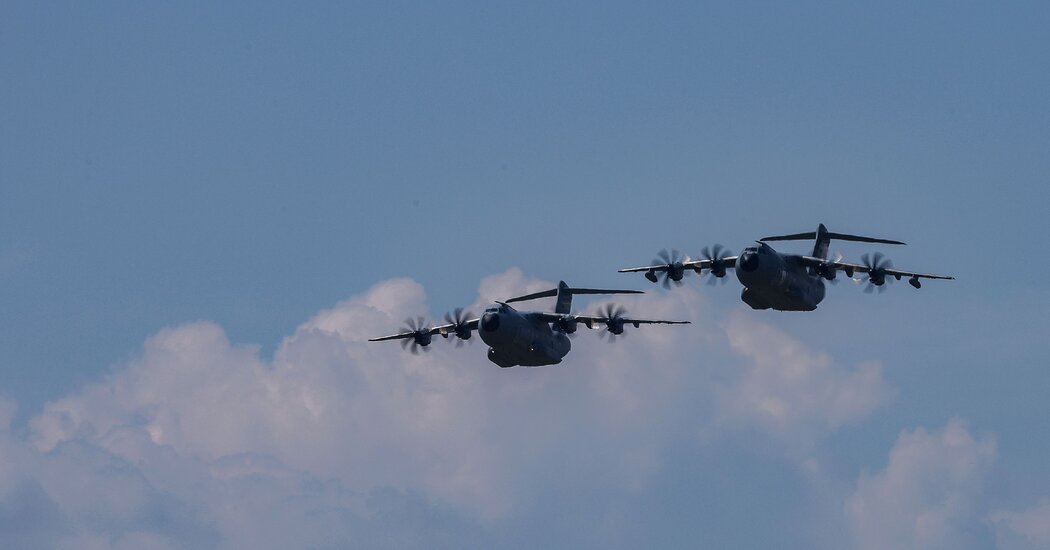youngsinatra
Member

NATO Nations Begin Giant Air Force Drills in Germany
More than 250 aircraft from 24 NATO countries and Japan will participate in a two-week military exercise.
WUNSTORF, Germany — More than 250 aircraft and 10,000 personnel will participate in a two-week military exercise beginning on Monday involving NATO nations and Japan, in what host nation Germany bills as the largest deployment of aircraft in the alliance’s history.
Planning for the training began in 2018. But it comes as fighting escalates on NATO’s doorstep in Ukraine, where Kyiv’s forces, backed by arms from Western allies, are mounting an offensive to reclaim territory captured by Russia since the invasion ordered last year by President Vladimir V. Putin.
Officials involved in the 25-nation NATO exercise said it sends a message about the alliance’s solidarity.
“I would be pretty surprised if any world leader was not taking note of what this shows, in terms of the spirit of this alliance, which means the strength of this alliance,” Amy Gutmann, the U.S. ambassador to Germany, told reporters last week. “That includes Mr. Putin.”
The exercise, known as Air Defender, is led by the German government and will bring together the largest number of aircraft from outside Germany for a training mission since NATO was founded in 1949. The United States flew about 100 National Guard and Navy aircraft to Germany for the exercises.
The 12-day event starts with an air show in Wunstorf, in northern Germany, that will feature cargo and refueling planes — workhorse aircraft that have been crucial to getting weapons and supplies to Ukraine. Pilots will conduct other missions with fighter jets, the show horses of the sky, at five other bases across Germany.
The exercise comes a few weeks after the United States reluctantly agreed to allow Ukrainian troops to train on, and eventually obtain, American-made F-16 fighter jets — not just for the current conflict against Russia but also as part of a longer-term deterrence strategy.
Air Force Gen. Ingo Gerhartz of Germany, who is overseeing Air Defender, said it was not “directed at anyone,” and emphasized that no offensive scenarios would be practiced. “We are a defense alliance, and so this exercise will be of a defensive nature,” General Gerhartz told reporters in Berlin.
But General Gerhartz said that when he proposed the exercise, in 2018, “the trigger for me back then was the capture, the annexation of Crimea,” the Ukrainian peninsula, by Mr. Putin four years earlier. After Russia’s full-scale invasion of Ukraine last year, General Gerhartz said, allies on NATO’s eastern flank, closest to Russia, “are asking for reinsurance” that the alliance will defend them in case of aggression by Moscow.
One goal of the exercise is to test how aircraft from so many states communicate with each other, said Douglas Barrie, a military aerospace expert at the International Institute for Strategic Studies, a research institute based in London.
Mr. Barrie said cargo and fuel flight crews will be closely watched during the exercises because of the important role they play in conflicts, including in Ukraine. But mostly, he said, the exercises are part of a “signaling” campaign — letting Mr. Putin know just what NATO is capable of launching against Russia, if needed.
Even if the exercises were planned years ago, Mr. Barrie said, “I’d be very surprised, shall we say, if the alliance wasn’t kind of looking at this as part of its overall messaging strategy.”
